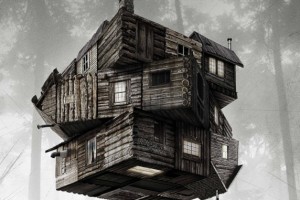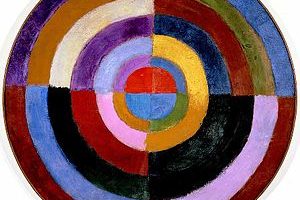I thought it might be fun to give a psych perspective on the current American obsession with the ever-impending “Zombie Apocalypse.” Undoubtedly you’ve noticed that the movies, shows, and increasingly so, merchandise, are popping up everywhere.
I don’t think there’s anything coincidental or surprising about it.
So why is our culture obsessed with it?
I think it’s important to first look at what else is happening in culture. There are many things we can consider: international tensions, high oil prices, periodic tension in Israel, etc. But I don’t think these are all that different than tensions that have been faced in previous decades by prior generations. In fact, these are much less severe than what some generations have faced. What has shaped the current generation more than anything is the Economic Recession, which most people say reached its zenith in 2008. Even though that was half a decade ago, (that’s a little hard to believe) the effects clearly continue to this day. Aside from the financial and economic ramifications, there are always pervasive social and personal ramifications from such a significant happening in culture. In case you were wondering what I’m rambling around in politics and economics, this is why.
Let me take a brief, but understandable, detour into psychology. One of my top-10 favorite psychologists is Rollo May. He wrote some amazing theoretical material, but was also a fantastic therapist; I always respect people who can keep that balance! In one of his books he said, “therapists have noticed that both artists and neurotics [a type of mental illness] speak and live from the subconscious and unconscious depths of their society. The artist does this positively, communicating what he experiences to his fellow men.” What he’s basically saying is that artists can communicate what is felt by a society that may or may not even be consciously recognized. There is always an ebb and flow to the emotional state of a society based on significant current events. Who can forget the way everything felt so much different for a while after 9/11? Well, 9/11 isn’t the only significant event that has affected the emotional state of our culture. Hold that thought; I’m going to come back to it in a second.
Another top-10 favorite psychologist of mine, who is a true dynasty of family therapy, is Murray Bowen. In his decades of work with families he noticed some amazing parallels between the way family dynamics work when conflicts or significant issues come up, and the way whole societies work in similar situations, but on a much larger scale. He assembled this into a theory called “Societal Emotional Regression.”
Let me just pause and make sure we’re on the same page here. “Emotional regression” means: when a person is confronted with a difficult situation, they often regress, or fall back, into behaviors and patterns that are more characteristic of them at an earlier time of life. The most common cultural example I can think of is from a Kleenex ad my mom kept on the fridge for years which said: “The bigger the man, the bigger the baby.” Right under that it has a picture of a middle-aged man tucked in bed, blowing his nose, looking like a little kid. We can probably all think of times when we’re sick or tired or disappointed where we just want to be babied or be a kid again. We just want to crawl into bed, be waited on, and be lazy. That’s a very normal example of regression. You know it’s happening, you bounce back once you’re feeling better- there’s nothing wrong there. What Bowen’s theory is looking at is when it’s not just a cold or a bad day, it is much more serious: for example, an economic recession complete with home foreclosures, job losses, and an unimaginably huge number for the US national debt. That sort of thing.
Hopefully I haven’t lost you going through some psych-jargon. If you’re still reading, give yourself some well-earned congratulations: Take a break and treat yourself to something nice.
So you may be asking yourself, “What do these have to do with the Zombie Apocalypse? Why am I reading this? Where am I?” All great questions, but if you actually asked yourself the last one, I’d be a little worried. Anyway…
The reason I think it’s worth taking a look at is because the Zombie Apocalypse fascination is much deeper than a couple movies coincidentally coming out at the same time. There was a time when it was the typical dorm-room and youth group banter: making plans for what you’ll do when the Zombie Apocalypse comes. But something changed. I don’t know if you’ve noticed, but the whole Zombie Apocalypse thing got very serious. Gun, knife, and outdoor supply companies almost all sell “zombie-survival kits” and products. Auto shows have been featuring actual Zombie Apocalypse survival vehicles. The Center for Disease Control even released an advisory for how to survive it! And guess which year holds the record for most zombie movie releases in history? 2008. If you’ve been reading closely, you’ll remember that’s the peak year of the recession. Hmmm….
So what does this all mean? Allow me to conjecture, and if you don’t mind, slip into a little bit of jargon.
The Zombie Apocalypse has become a symbol. Americans’ fears of economic collapse, war, and the end can all latch onto it. At a surface level it’s a cultural phenomenon and the prevailing horror genre. But beneath the surface artists and writers are expressing America’s emotional regression and fears of what is happening in our country, nay, the world. Not just now, but in the future. People enjoy watching the Walking Dead or World War Z because something about it resonates with them, it’s not just entertaining, but it feels like a haunting premonition of what may come. What do we think is coming? Well, if you look at the genre, apparently our expectations aren’t very high. The Zombie genre represents death, destruction of the infrastructure of society, and the collapse of all we’ve known. It represents rebirth; picking up the pieces of the past and creating a new tomorrow with our bare hands. It also represents building a simple new world without all the complexity and fear of the past.
By naming all of this, I’m not belittling anyone for enjoying the genre. Instead, I think it’s important and interesting to look at the symbolism and meaning behind what our culture is fascinated with. Clearly there’s nothing simple about it!





1 Comment
Leave your reply.